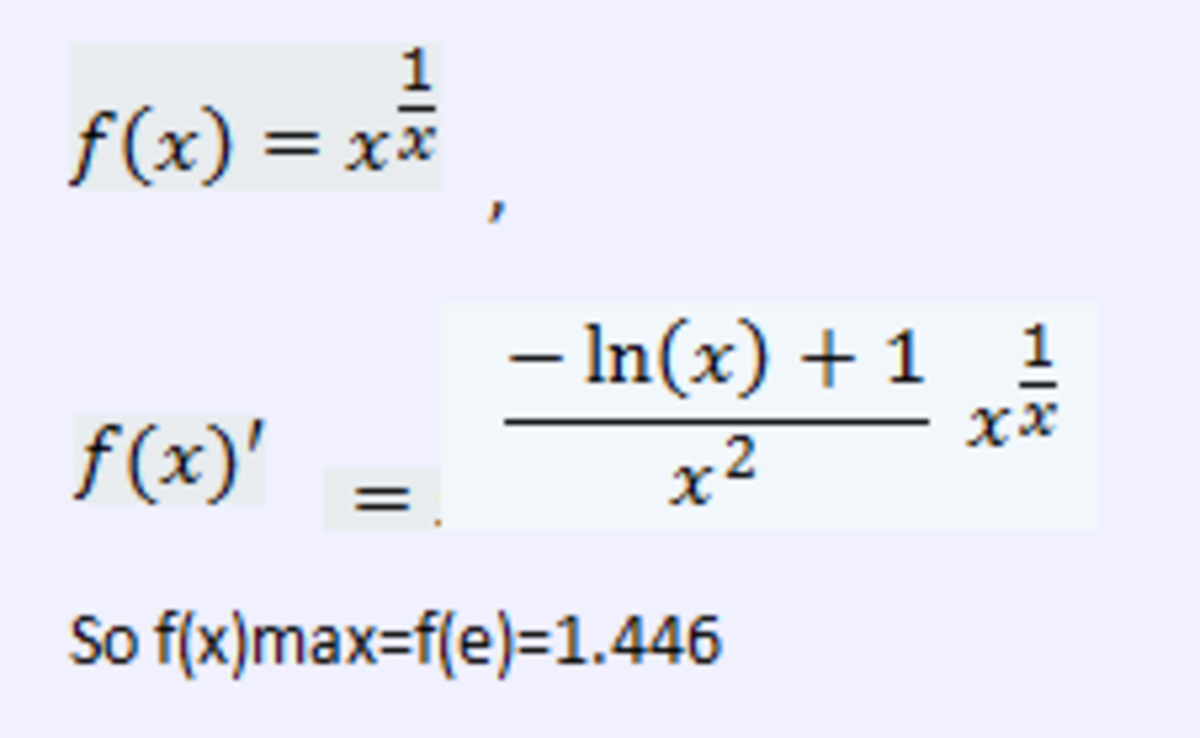Can you find the maximum
x x 1
What is the maximum value of the expression above?
The answer is 1.444667.
This section requires Javascript.
You are seeing this because something didn't load right. We suggest you, (a) try
refreshing the page, (b) enabling javascript if it is disabled on your browser and,
finally, (c)
loading the
non-javascript version of this page
. We're sorry about the hassle.
2 solutions
Let y = x x 1 . Then taking natural logarithm both sides,
ln y y 1 ⋅ d x d y − y 2 1 ⋅ d x d y + y 1 ⋅ d x 2 d 2 y ⟹ 0 + y 1 ⋅ d x 2 d 2 y ∣ ∣ ∣ ∣ x = e = x ln x = x 2 1 − ln x = x 3 − 1 − 2 ( 1 − ln x ) = − e 3 1 Differentiate both sides w.r.t. x . ⟹ d x d y = 0 , when ln x = 1 ⟹ x = e Differentiate both sides w.r.t. x again. ⟹ d x 2 d 2 y ∣ ∣ ∣ ∣ x = e < 0 , as y = x x 1 > 0
Therefore, max ( x x 1 ) = e e 1 ≈ 1 . 4 4 5 .
